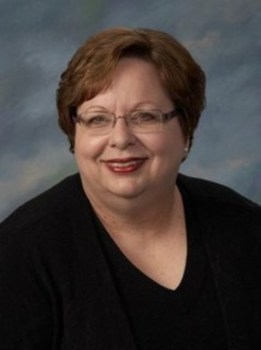This text-based course is a transcript of the live seminar, “Professional Ethics in a Changing Professional Landscape,” presented by Sue T. Hale, M.C.D., CCC-SLP.
>> Sue Hale: I am very pleased to talk on this topic because I think that we are continually challenged by the occurrences in our larger professional landscape, and it is important in times like this for us to maintain a consistent ethical framework as the work environment seems to change. We are looking for consistency in the application of ethics in a changing environment. We need to understand our ethical responsibility to our profession, our patients, our colleagues, and certainly to the public as we face the demands that are our employers, our regulatory bodies and our payers bring to us.
I start off with a quote from Paul McCartney’s song Live and Let Die, “In this ever-changing world in which we live in.” I have checked that several times to make sure that he started and ended with a preposition, and he did. It probably worked better with music.
We certainly need clear concepts of what constitutes professional behavior. We need to be familiar with the principles and rules of our code of ethics, and we certainly need some internal tools for evaluating what is professional and what is ethical, and of course, what is neither of those.
I have some hopes for this session as we go through this presentation together. I would hope that all of you who are listening will be able to, when we finish, list the characteristics of a self-monitoring profession. That is a concept that I will return to a number of times as we go through this session. I hope that you will be able to describe a framework for ethical decision making when you are confronted with ethical dilemmas, as you most certainly will be. I hope that you will be able to list the inherent values in a professional code of ethics as well as be able to apply them.
Professionalism
One of the concepts that I will be using as a framework for our discussion of ethics is the notion of professionalism. As we go through the session, I hope that you will return to this concept and this thought about exactly, “What is a profession? What special responsibilities do professionals have? Why do they have those responsibilities? What relationship exists between being a professional and then behaving in an ethical way?”
You may be aware that the original professions were medicine, law, and theology. Those were considered to separate those individuals, to give them a status separate from everyone else because they participated in those particular professions. We certainly have many more professions today. It might interest you to know that when Wikipedia lists a variety of professions, and they do have a pretty extensive list, they do not list Audiology or Speech-Language Pathology as professions. As I was puzzling over that, I also realized that they do not list being a professor as a profession, despite the shared root word of that particular status. Many of us consider ourselves to be part of a profession, either as an audiologist or speech-language pathologist, and we will just need to correct Wikipedia to let them know we are in professions, despite their omission of us.

